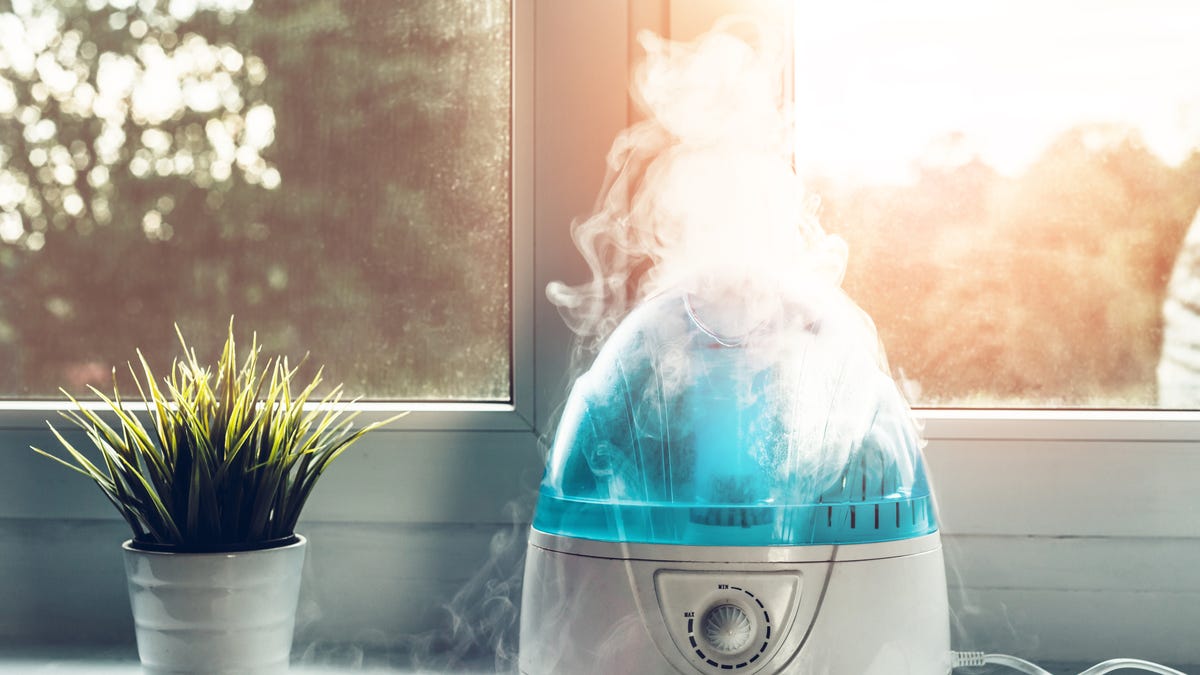How to keep your humidifier running all winter long
A humidifier can help ease some symptoms associated with dry air. Learn how to keep your in good working condition.

Extend the life of your humidifier with these tips and tricks.
Heading into the winter months, you might be preparing yourself for cold temperatures, dry skin and the cold or flu that tends to hit your household every year. You might be surprised to learn that low humidity can exacerbate all of these problems. Using a humidifier in your home can help keep your family healthier and more comfortable through the dryer months. Keep reading to learn how humidifiers work, the potential benefits of using one in your home and how to properly maintain a humidifier.
What is a humidifier?
A humidifier is a tool in your home that raises the humidity in your home by releasing water vapor or steam into the air. There are several different types of humidifiers, each of which has its own advantages:
- Ultrasonic humidifier: This type of humidifier uses ultrasonic vibration to create a cool mist that is sprayed into your home and evaporates.
- Impeller humidifier: Like the ultrasonic humidifier, the impeller humidifier also produces a cool mist but does so using a rotating disk.
- Evaporator: An evaporator is a type of humidifier that uses a fan to blow air through a wet filter or belt, dispersing it into the room as cool mist.
- Steam vaporizer: This type of humidifier uses electricity to create steam that it then blows into the air. The machine cools the steam before it releases it, resulting in a cool mist, similar to other types of humidifiers.
Each of these machines serves the same basic function of raising the humidity in your home, but they work differently, may come at different price points and require different types of maintenance.
Humidity in your home
Humidity refers to the level of moisture in the air. There tends to be more moisture in the air during certain seasons, especially summer, and less during the winter months. And as the humidity changes with the season, so does the humidity in your home.
While high humidity can feel uncomfortable, there are just as many downsides to air that doesn't have enough humidity. For example, low humidity can make your home feel colder and can dry out your skin. The purpose of a humidifier is to increase the moisture in your home's air to make it more comfortable.
Benefits of a humidifier
As we mentioned, both high humidity and low humidity can feel uncomfortable in your home. During the winter months, when the air tends to be dry, there are plenty of benefits of using a humidifier to increase moisture.
First, you might notice that during the colder months, your skin tends to be drier, often to the point of being uncomfortable or cracking open. Increasing the moisture in the air can also help to increase your skin's moisture.
Dry air can also lead to problems with your sinuses. Many people experience sore throats and bloody noses during the winter, which a humidifier can help to resolve. And when you have a cold, dry air can make it more difficult to recover. Data has even shown that breathing in dry air can lead to health issues like asthma and bronchitis.
Increasing your home's humidity can also simply make your home more comfortable. You have probably noticed that when humidity is high in the summer, it makes it feel even hotter outside. Well, a lack of humidity can cause it to feel colder than it really is. In areas that are cold in the winter, increasing your home's humidity can make your family more comfortable.
Humidifier maintenance
If you have a humidifier in your home, it's important to properly maintain it. When your humidifier reservoir or filter becomes dirty, it can breed mold and bacteria, which can be harmful to anyone, but especially those with allergies or asthma. Here are a few tips to help you keep your humidifier clean and safe:
- Change your humidifier water often (preferably every day).
- Use distilled or demineralized water in your humidifier rather than tap water.
- Clean your humidifier every three days to remove mineral deposits or film. You can use hydrogen peroxide or another disinfectant.
- Rinse your water tank after cleaning to prevent cleaning chemicals from becoming airborne.
- Change your humidifier filters at least as often as the manufacturer recommends.
- Prevent the area around your humidifier from becoming damp or wet.
- If you store your humidifier for part of the year, fully drain, clean and dry it first, disposing of used cartridges, cassettes or filters.
Final thoughts
A humidifier is designed to increase the moisture in your home's air, especially during the winter months when humidity tends to be lower. Using a humidifier in your home can help reduce dry skin, sore throats and more while making your home more comfortable. But if you decide to use one in your home, be sure to maintain it properly to protect the health of your family and the longevity of your humidifier.

